More banking reforms, subsidy cuts prescribed
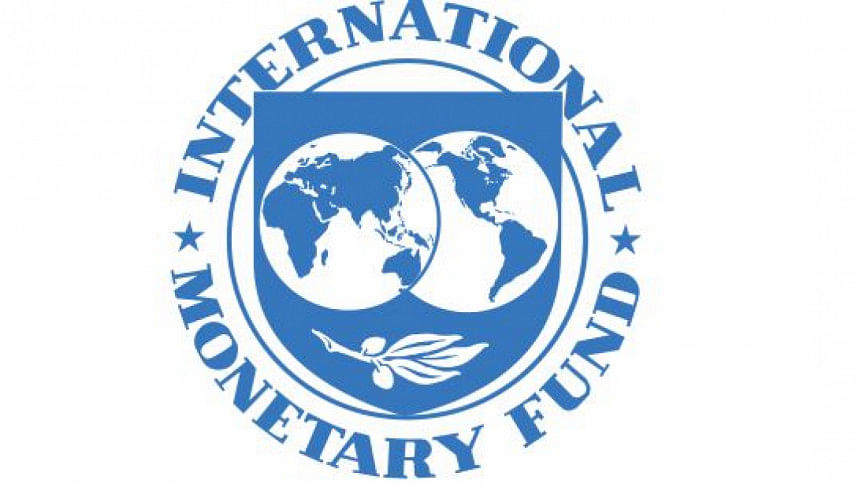
"Reducing banking sector vulnerabilities remains a priority. Efforts to implement the non-performing loan reduction strategy should help support the growing financing needs of the economy."
The International Monetary Fund (IMF) emphasised more reforms in the banking sector and tax collections and reducing subsidies to help the economy turn around.
"Reducing banking sector vulnerabilities remains a priority. Efforts to implement the non-performing loan reduction strategy should help support the growing financing needs of the economy," said an IMF mission statement yesterday upon the conclusion of its 15-day visit to Dhaka.
The mission, led by Chris Papageorgiou, reached Dhaka on April 24 for the second review of targets set for Bangladesh under the multilateral lender's $4.7 billion loan programme. Yesterday, the IMF mission agreed to provide $1.15 billion to Bangladesh in the third tranche under the loan programme.
"An IMF team reached a staff-level agreement with the government of Bangladesh on the policies needed to complete the second review under the ECF/EFF/RSF [Extended Credit Facility/Extended Fund Facility/ Resilience and Sustainability Facility] arrangements," the global lender said.
The staff-level agreement is subject to approval by the Executive Board of the Washington-based lender, which is expected in June.
Of the amount of the third tranche, about $932 million will be under the ECF/EFF and about $220 million under the RSF.
"The authorities have made significant progress on structural reforms under the IMF-supported programme, including the implementation of a formula-based fuel price adjustment mechanism for petroleum products," said Papageorgiou in the statement.
Nonetheless, larger-than-expected spillovers from tightening of global financial conditions, and still elevated international commodity and food prices, coupled with domestic vulnerabilities, have led to persistently high inflation and declining foreign exchange reserves.
This has exacerbated pressures on the economy and heightened the complexity of macroeconomic challenges, the IMF mission said.
"Against this backdrop, we welcome Bangladesh Bank's bold actions to realign the exchange rate and simultaneously adopt a crawling peg regime with a band as a transitional step toward greater exchange rate flexibility to restore external resilience."
Following the liberalisation of retail interest rates, additional tightening of monetary policy should help alleviate any inflationary pressures resulting from the exchange rate reform.
"Fiscal policy should support these monetary tightening efforts through revenue-based consolidation. If external and inflationary pressures intensify, the authorities should stand ready to tighten policies further," the IMF said.
Considering Bangladesh's low tax-to-GDP ratio, the lender thinks it is imperative to prioritise sustainable revenue generation to bolster investments in social welfare and development initiatives.
To this end, tangible tax policy and administrative measures should be incorporated into the budget for the upcoming fiscal year of 2024-25 to augment tax revenues by 0.5 percent of the GDP, it said.
It called for a medium- and long-term revenue strategy, with an accompanying implementation framework, to guide future reforms.
"Reducing subsidies, improving expenditure efficiency, and managing fiscal risks will allow for additional spending on social safety nets and growth-enhancing investment."
On the banking sector, the IMF said Bangladesh Bank should continue the transition to risk-based supervision to enhance financial sector resilience while continuing legal reforms to improve corporate governance and regulatory frameworks.
"Looking ahead, domestic capital market development will be instrumental in mobilising long-term financing to support growth."
Also, maintaining the reform momentum is critical to align with the authorities' goal of reaching upper middle-income country status by 2031, it said.
After the latest review, the IMF mission projected that Bangladesh's GDP will grow by 5.4 percent in FY24. In April, the IMF in its economic outlook projected Bangladesh's GDP growth to be 5.7 percent.
However, inflation is projected to remain elevated at approximately 9.4 percent year-on-year in FY24. It is anticipated to decline to around 7.2 percent in FY25, on the back of the continued tighter policy mix and projected lower global food and commodity prices.
"Nevertheless, uncertainties surrounding the outlook remain high, with risks predominantly leaning towards the downside," the IMF added.

 For all latest news, follow The Daily Star's Google News channel.
For all latest news, follow The Daily Star's Google News channel. 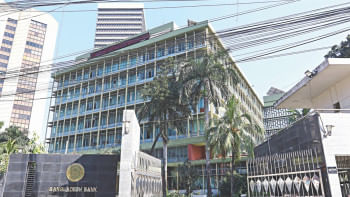




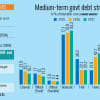
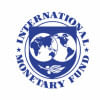
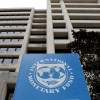


Comments